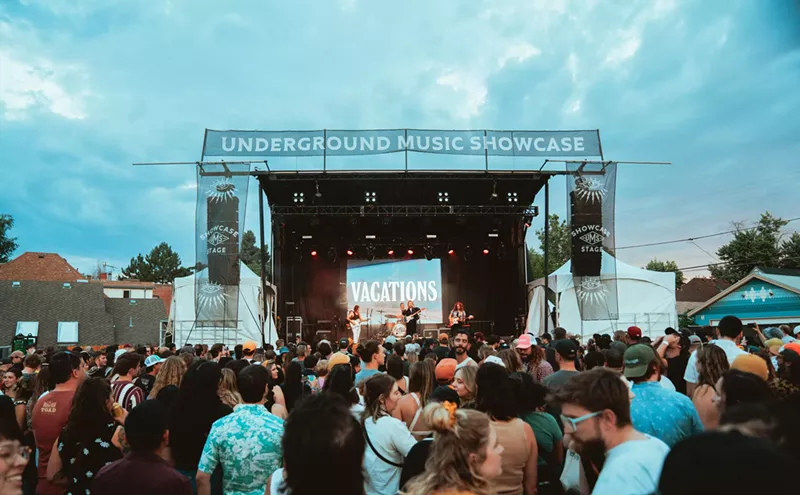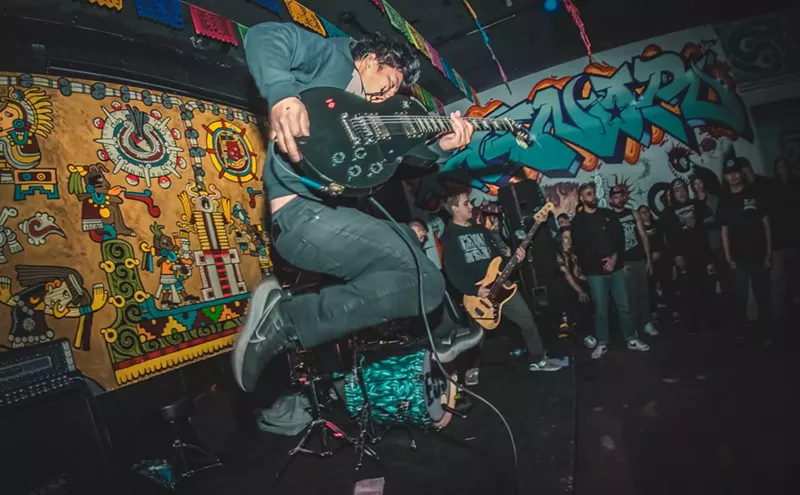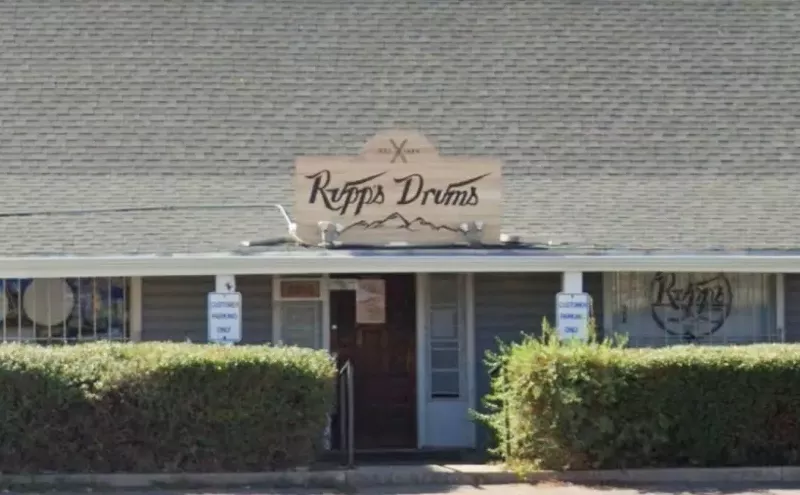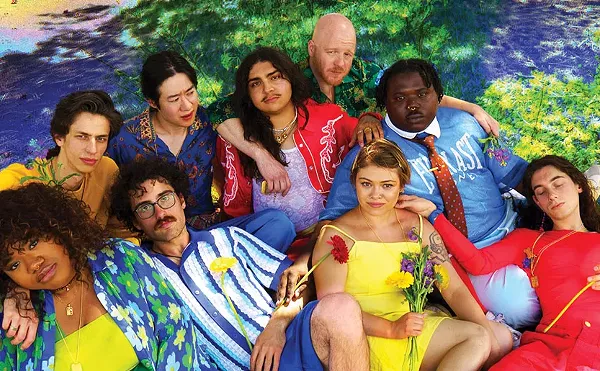After Sleep broke up in 1998, singer/guitarist Matt Pike formed High on Fire with drummer Des Kensel and bassist George Rice. Initially evoking more of a doom rock sound, High on Fire evolved into being more of a straight ahead metal band without either dumbing down the music or taming its players' collective talent for writing driving and brutal music with a walloping low end and warping melodies. The imagery of the band's songs could have been pulled from the pages of the best of Robert E. Howard's stories and the music is surely the soundtrack for a barbarian invasion.
The appeal of High on Fire seems to extend to people who wouldn't normally be into metal partly because, despite its proclivity for fantasy imagery, High on Fire comes off as the kind of band who cares about writing songs that don't just appeal to fellow musicians or those that wish they were. We had a chat recently with founding drummer Des Kensel about how the band came together and got its name, his craft, the band's various bassists and whether or not High on Fire is necessarily a "stoner rock" band.
How did you meet Matt Pike and George Rice and what brought you together to form High on Fire? Is the name at all a reference to the Telescopes song of the same name?
I met Matt in '97 or '98 through a mutual friend. I was trying to meet people to start a band with, and a friend said he knew someone he thought I'd get along with. It happened to be Matt because Sleep had just broken up. I drove down to San Jose with just my drums and picked up Matt, and it just clicked.
I met George because Matt and I were jamming with two other guys, another bass player and another guitar player, and George was just coming over at the time to hang out and watch us jam because he was going to try out to sing. This is kind of fucked up, but the bass player at the time's cousin had just died, and he couldn't be around for a while, so George picked up the bass.
The name came from the fact that George is a big fan of ELO "Fire on High," and he threw that out there for the hell of it, and we were like, "Nah, I don't think so." So Matt turned it around, and it became High on Fire.
You have a massive drum sound. What first inspired you to play drums, what kind of kit do you play, and how has that changed since you first started playing drums?
I first started when I was ten. A friend of mine down the street, his dad had a lot of classic rock and heavy metal records: Ozzy, Judas Priest, Rush and stuff like that. After hearing all of that, I just wanted to play music. The school band didn't have electric guitar, so I played drums. I got one drum at a time until I was twelve when I had a five-piece kit. I played along with my headphones on from my walkman. Then in high school, I met up with other friends, and we'd jam and start bands. The kit I play right now is a Tama. It's that Birch/Bubinga thing. I've been endorsed by Tama for two years now.
While the songs are still brutally intense, it sounds like there's more of a melodic sound on the new album compared to your previous records. Was that something you tried for as a band, and is it something that evolved as you were writing and recording the album?
This record, writing-wise, the end product, wasn't what we had in mind from the beginning. On the last record, we had interludes that we experimented with, and we dug that and wanted to go more in that direction. But it ended up kind of being the opposite. This record was hard to finish. I had a kid, and we had other personal issues that held it up. We didn't have a plan to make it more melodic but a lot of the riffs are heavier and straight forward. But a lot of it ended up being unintentionally melodic. Jeff contributed a lot more in the writing this time around.
You've had some impressive bass players in your band over the years. What do you feel each of them brought to the band, and how did you meet and bring both Joe Preston and Jeff Matz? George was a great bass player, but I think he got burnt. We had studio time booked with Steve Albini, and we had hardly any of Blessed Black Wings written. I think we had two songs, but I think Matt and I busted out the rest of that record in two weeks. We were thinking of having someone just do the bass tracks on the record, and after the record was recorded, and while the label was pushing it, we could do tryouts.
We met Joe because we played The More The Music Festival in Columbus, Ohio, and Thrones played that. His hotel room was next to ours, and we knew about him from way back being in The Melvins. We were thinking the situation he was in, that he didn't have to talk to a band to play bass tracks on our record. He was totally into the idea; he learned it really fast.
We loved his tone, his style of playing and how thickened it up with a lot of chord work. We did a couple of weeks of shows on our way to Chicago, and after the two weeks of shows, he enjoyed playing with us and we enjoyed having him, so we asked him if he wanted to do a tour or two. We got offered a Clutch tour while we were in studio.
He agreed to do that. Then the record came out, and he did the record release tour, and two years later, he said, "Hey, man, I didn't really expect to be in this band that long." And we were like, "You know what? We didn't expect you to do that either." But it was definitely great to play with him for two years and do that record.
We were in a similar position again, and Matt called Hank III to see if he wanted to fill in on a record. He said he was too busy with his projects, and he knew Jeff, and he knew that Zeke had just broken up or were on hiatus. We had played with Zeke before, and he came to our shows in Seattle when Zeke wasn't on tour. So he drove down with nothing but his Ampeg and his bass guitar and tried out. We went on tour, and his personality worked out and the chemistry in the practice space and in the band was good.
Any time someone writes about your band they use the terms "stoner rock" and "doom metal." Do you feel those terms really apply to High on Fire?
Yes and no. I think we get the "stoner rock" thing because of our connection with Sleep. I mean that's fine, people who like Sleep and other stoner rock bands might like us. Since we've started, the direction the band has gone has been more of a metal direction. I think a lot of people who are into metal don't like stoner rock. The "doom metal" thing, I can see us getting thrown in that category, especially when we first came out. I don't think we're a doom band or anything, but it's another label to throw on a band to help describe them.










